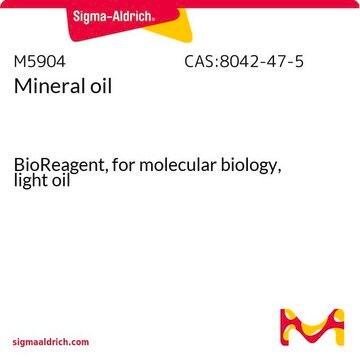S4641
Sodium citrate tribasic dihydrate
ACS reagent, ≥99.0%
Synonym(s):
Citric acid trisodium salt dihydrate, Trisodium citrate dihydrate
About This Item
Recommended Products
grade
ACS reagent
Quality Level
Agency
suitable for SM 4500 - NH3
Assay
≥99.0%
impurities
≤0.003% Ammonia (NH3)
≤0.005% Insoluble matter
pH
7.0-9.0 (25 °C, 5% in solution)
mp
>300 °C (lit.)
solubility
water: soluble 29.4 g/L at 20 °C (completely)
anion traces
chloride (Cl-): ≤0.003%
sulfate (SO42-): ≤0.005%
cation traces
Ca: ≤0.005%
Fe: ≤5 ppm
heavy metals: ≤5 ppm (by ICP-OES)
SMILES string
O.O.[Na+].[Na+].[Na+].OC(CC([O-])=O)(CC([O-])=O)C([O-])=O
InChI
1S/C6H8O7.3Na.2H2O/c7-3(8)1-6(13,5(11)12)2-4(9)10;;;;;/h13H,1-2H2,(H,7,8)(H,9,10)(H,11,12);;;;2*1H2/q;3*+1;;/p-3
InChI key
NLJMYIDDQXHKNR-UHFFFAOYSA-K
Looking for similar products? Visit Product Comparison Guide
Application
- Fused O- and N-heterocyclic derivatives via multicomponent Knoevenagel-cyclocondensation of isatin/aldehyde/ acenaphthylene-1,2-dione, malononitrile, and various C−H activated acids.
- Chromeno[3′,4′:5,6]pyrano[2,3-d]pyrimidines by the condensation reaction of 4-hydroxycoumarin, aromatic aldehydes, and barbituric acid/thiobarbituric acid.
It can also be used as:
A reducing agent to synthesize metal nanoparticles via sol-gel method using corresponding metal salt precursors.
A controlling agent in the synthesis of single-crystal of coordination polymer [Co(H2O)2Ni(CN)4 4H2O].
Storage Class Code
11 - Combustible Solids
WGK
WGK 1
Flash Point(F)
Not applicable
Flash Point(C)
Not applicable
Personal Protective Equipment
Choose from one of the most recent versions:
Certificates of Analysis (COA)
Don't see the Right Version?
If you require a particular version, you can look up a specific certificate by the Lot or Batch number.
Already Own This Product?
Find documentation for the products that you have recently purchased in the Document Library.
Customers Also Viewed
Articles
Citrate is one of many cell culture components that affects the performance of serum-free, protein-free and animal protein-free cell culture systems used for biomanufacturing heterologous proteins such as monoclonal antibodies.
Related Content
This page is intended to make it easier to find the consumables you need based on the analytical method you’re using. Methods included on this page come from the EPA, Standard Methods and ASTM.
Our team of scientists has experience in all areas of research including Life Science, Material Science, Chemical Synthesis, Chromatography, Analytical and many others.
Contact Technical Service






